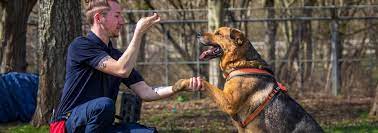
Becoming a dog trainer in Virginia can be a rewarding and fulfilling career choice, but it comes with its own unique set of challenges and legal considerations. As with any profession, there may be instances where a dog trainer in Virginia would require the services of an education lawyer. In this comprehensive guide, we will explore the specific scenarios and situations in which a Virginia dog trainer might need the assistance of an education lawyer to navigate the legal complexities of their profession.
Certification Denial or Revocation
One of the most common reasons a Virginia dog trainer might need an education lawyer is if their certification is denied or revoked. Certification is often obtained through reputable organizations such as the International Association of Canine Professionals (IACP) or the Association of Professional Dog Trainers (APDT). These certifications not only validate a trainer’s skills but also set ethical standards for the profession.
However, certification denial or revocation can occur due to allegations of unethical behavior, the use of inhumane training methods, or failure to meet continuing education requirements. In such cases, an education lawyer can assist the trainer in understanding the grounds for the denial or revocation, appealing the decision, and ensuring compliance with certification standards.
Legal Compliance for Dog Training Businesses
Operating a dog training business in Virginia requires adherence to various legal requirements, including business registration, permits, insurance, and tax obligations. Failing to meet these legal obligations can result in legal challenges and financial penalties.
Education lawyers with expertise in animal-related professions can provide guidance on business compliance, including selecting the appropriate business structure, drafting contracts, and addressing liability concerns. They can help trainers ensure that their dog training business operates in accordance with Virginia’s laws and regulations.
Disputes with Clients
While most dog trainers build positive and productive relationships with their clients, disputes can occasionally arise. These disputes may involve disagreements over training methods, outcomes, fees, or issues related to injuries sustained during training sessions.
An education lawyer can play a crucial role in mediating disputes, providing legal advice on resolving conflicts amicably, and drafting contracts and agreements that clearly outline the trainer’s services, fees, and liability. By having legal counsel, Virginia dog trainers can minimize the risk of disputes escalating into legal battles.
Animal Welfare Concerns
Animal welfare is a top priority for responsible dog trainers. However, in some instances, trainers may face false accusations of mistreatment or neglect of animals in their care. These allegations can be damaging to both their professional reputation and livelihood.
An education lawyer can help defend against baseless accusations, ensuring that the trainer’s practices align with ethical and legal standards. They can also offer guidance on documenting training sessions, maintaining records, and ensuring compliance with Virginia’s animal welfare laws.
Employment and Independent Contractor Agreements
Many dog trainers in Virginia work with assistants or independent contractors to facilitate training sessions. Establishing clear and legally sound employment or independent contractor agreements is essential to protect the rights and responsibilities of all parties involved.
Education lawyers can assist in drafting, reviewing, and enforcing these agreements to ensure compliance with Virginia’s employment laws. If disputes or conflicts arise with employees or contractors, having legal representation can be invaluable in resolving issues efficiently.
Intellectual Property and Copyright Issues
Virginia dog trainers often develop their own training methods, materials, and content, such as training manuals, videos, or books. Protecting these intellectual property rights is crucial to prevent unauthorized use or reproduction by others.
Education lawyers Virginia can assist dog trainers in registering trademarks for their training methods or materials, enforcing copyright protection, and taking legal action against infringement if necessary. By safeguarding their intellectual property, trainers can maintain control over their unique contributions to the field.
Conclusion
Becoming a successful dog trainer in Virginia involves not only a passion for working with dogs but also a commitment to ethical and legal standards. Given the complexities of this profession, there are several situations where a Virginia dog trainer might need the services of an education lawyer.
Education lawyers with expertise in animal-related professions can provide guidance, support, and legal representation in cases involving certification, legal compliance, client disputes, animal welfare concerns, employment agreements, and intellectual property issues. By seeking legal counsel when needed, Virginia dog trainers can ensure that they operate professionally, ethically, and within the boundaries of Virginia’s laws, ultimately contributing to the welfare of the dogs they train and the satisfaction of their clients. In the world of dog training, education and legal expertise work hand in hand to create a thriving and law-abiding profession.

